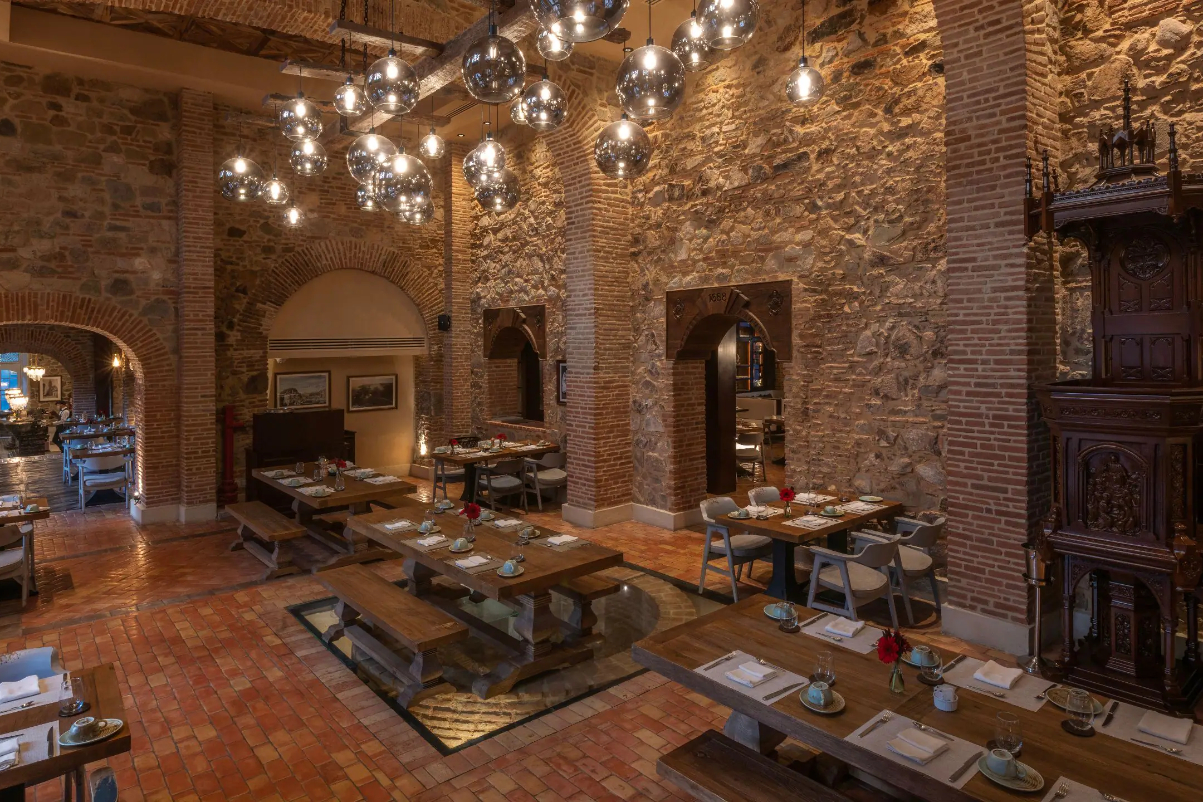Hyatt Exec Explains Soft Brand Strategy With Boutique Luxury Hotels

Skift Take
Hyatt Hotels said Wednesday it plans to open more than 50 luxury and lifestyle properties globally by 2026. But perhaps more intriguing is how the Chicago-based hospitality giant is courting fiercely independent hoteliers who traditionally shy away from affiliating with big chains.
"[Some hotel owners] want the distribution, they want the resources, but they don't want their guests to know that they're affiliated with Hyatt," said Katie Johnson, global brand leader for the group's independent lifestyle soft brands.
Take, for instance, Hyatt's handling of Hotel La Compañia in Panama City's historic center. The owner, local businessman Chris Lenz, still often greets guests at the door and conducts impromptu tours of his property, which was restored by design firm SODA.
It's the kind of hands-on hospitality that makes Instagram influencers swoon, Johnson said.
"Crucially, you won't find a Hyatt logo anywhere unless you're really looking for it," Johnson told Skift at the ILTM Cannes luxury travel show.
Bet on Soft Brands
One plank in Hyatt's luxury strategy is building its soft brands — or collections of hotels that maintain unique identities while tapping into Hyatt's distribution network.
Hyatt provides hotel owners with distribution muscle and operational support without requiring them to display the Hyatt name prominently on their hotels or surrender their unique ways of running them.
Soft brands like The Unbound Collection by Hyatt involve fewer rules, or “standards,” from the Chicago-based headquarters of Hyatt than so-called hard brands.
About 20 ownership groups are now developing multiple properties within Hyatt's soft brands (The Unbound Collection by Hyatt, Destination by Hyatt, and JdV by Hyatt) — creating what Johnson called "micro-chains."
"For some of them, their hotels are passion projects or about family legacies," Johnson said. "They want their own creative license to celebrate the culture and community of their destination in a very intimate way."
Strategic Move
Hyatt said its premium push comes as the company has doubled its luxury room count since 2017, with 70% of its global rooms now categorized as luxury or upper upscale.
Yet many high-net-worth individuals have already experienced traditional luxury brands and are looking for something distinctive and surprising.
That's why Hyatt is trying to walk the tightrope of preserving hotels' independent souls while achieving some scale efficiencies.
Measuring Success
Unlike traditional franchise relationships, Hyatt's soft brand approach involves minimal rules.
"We don't give them a playbook," Johnson emphasizes. "They have to meet brand standards because they are part of Hyatt and have to deliver elevated service, but when it comes to the guest experience within the soft brand space, they define it."
The company has developed unique metrics for measuring success in this space.
For instance, with The Unbound Collection, Hyatt tracks whether guests recognize the collection's association and feel connected to each property's unique story — what Johnson calls the "story-worthy" factor.
Competing for Hotels
Hyatt isn't alone in tapping into soft brands. Choice's Ascend Hotel Collection pioneered the concept. Today's soft brands include Hilton's Tapestry Collection and Marriott's Autograph Collection, BWH Hotels' WorldHotels, among others.
However, Hyatt is positioning itself as particularly suited to independent luxury hoteliers, emphasizing its relatively smaller size as an advantage.
"We're able to be more flexible, more hands-on, and more agile because we aren't the biggest," Johnson notes. "What makes us strong is our personal connection with our owners, operators, and colleagues."
Johnson's job is to pitch Hyatt as the best umbrella for creative, independent hoteliers. She says she spends about 30% of her time wooing owners.
"We're doing a lot of training on how to define luxury and how do you ensure that the guest experience is unscripted and unparalleled and elevated," Johnson said. "I don't see this with Hilton, Hilton, or Marriott."
Listening to Owners
Hyatt has established an owners' advisory committee that meets twice yearly to pressure-test new initiatives and provide feedback.
This has led to changes: owners recently highlighted the need for better storytelling on Hyatt's digital platforms to differentiate their properties from the company's business-focused brands.
In response, Hyatt is working on a "personalization engine" for its website to showcase its properties better by matching relevant hotels to travelers.
Separately, a once-a-quarter virtual training program shares best practices across regions, while periodic brand assessments help properties sharpen their positioning.
"We give hotel owners the flexibility to create this authentic luxury experience, but at the same time, receive training in best practices to ensure that the guests that we're driving into their doors have an unparalleled experience," Johnson said.
Accommodations Sector Stock Index Performance Year-to-Date
What am I looking at? The performance of hotels and short-term rental sector stocks within the ST200. The index includes companies publicly traded across global markets, including international and regional hotel brands, hotel REITs, hotel management companies, alternative accommodations, and timeshares.
The Skift Travel 200 (ST200) combines the financial performance of nearly 200 travel companies worth more than a trillion dollars into a single number. See more hotels and short-term rental financial sector performance.
Read the full methodology behind the Skift Travel 200.
Soft brands have helped Hyatt shift away from its one-time reputation as a brand for business travelers and corporate events. The company said Wednesday that 70% of its global rooms are now considered luxury or upper upscale.





